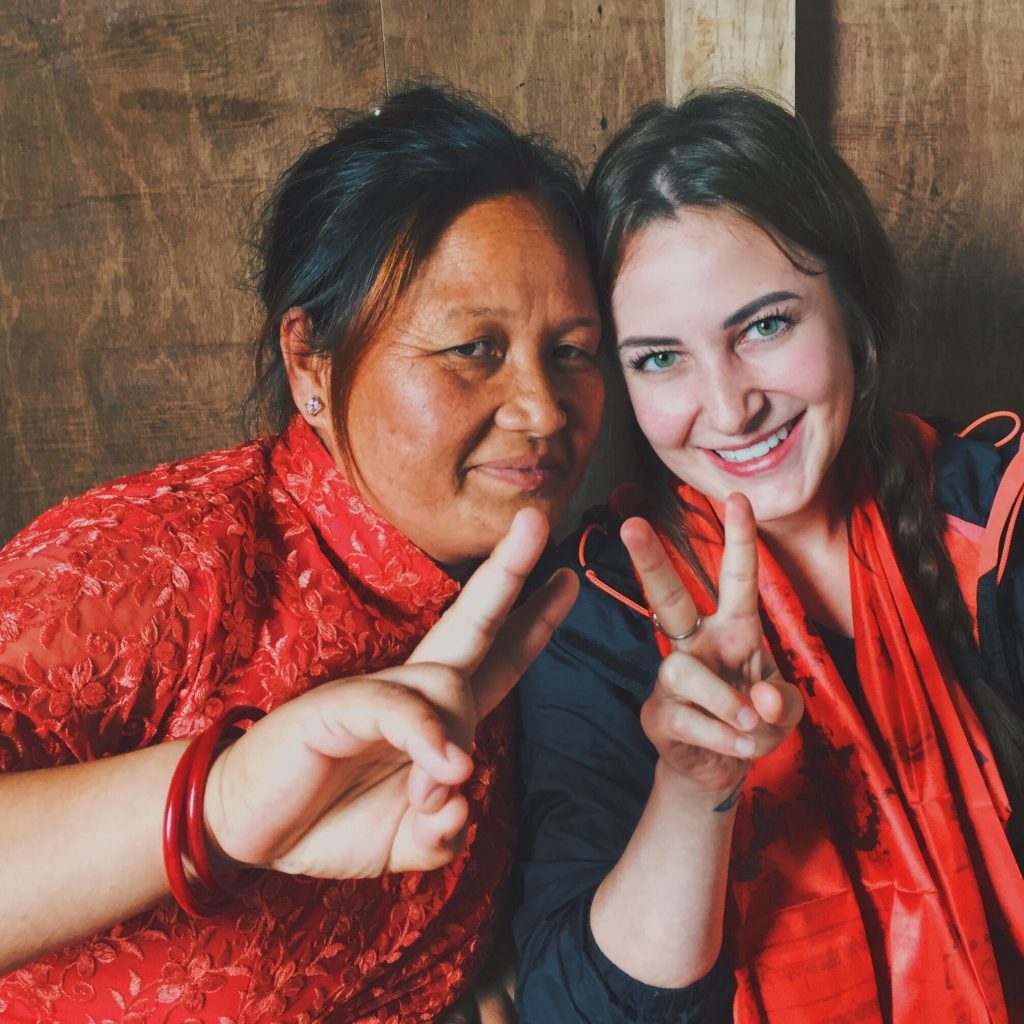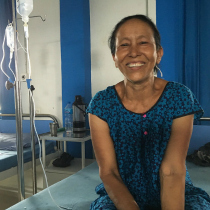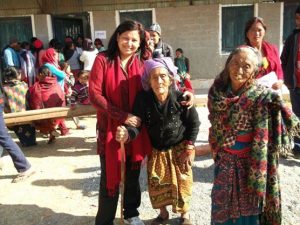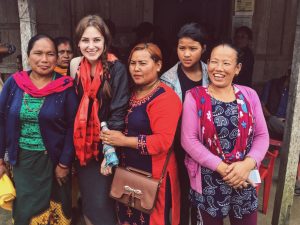Fellowship #3: Screen village women for prolapse in Nepal
Location: Kathmandu and Dhankuta, Nepal
2017 Peace Fellow Rachel Pettit (University of Sciences Po, Paris) helped Care Women Nepal to organize a health camp for village women in eastern Nepal. After her fellowship Rachel worked for the UN High Commissioner for Human Rights in Geneva.
Watch a video of the Care Women’s Health Camp here!
AP’s partner Care Women Nepal provides an essential service for isolated women in the district of Dhankuta by organizing health camps where women are screened for the medical condition of uterine prolapse. Those with 3rd degree prolapse are waitlisted and sent for surgery. CWN has held ten CWN health camps since 2014 and screened 6,420 women, with funds raised by AP.
In 2018 CWN and AP hope to take this important program to a new level by strengthening the district health system. CWN will organize a health camp with the local district hospital and use the camp to train doctors from the hospital and nurses from local health centers in prolapse diagnosis and treatment. Working through the government offers the best chance of building a sustainable model that will benefit all women in the under-served district of Dhankuta.
The 2018 Fellow will be based in Dhankuta and support all aspects of this exciting program. They will visit villages in advance, work with a team of volunteers, and profile beneficiaries. CWN will also need help in developing a year-round schedule of surgeries with hospitals.
Qualifications
- A commitment to women’s reproductive health
- A background in health or public health – nursing preferred
- Skilled at writing, storytelling, journalism, photography and video
- Experience of organizing and fundraising for events
- Working experience in Nepal or the region
- Nepali language preferred.
For More Information
- Health Camps Offer Relief from Prolapse in the Mountains of Nepal
- The blogs of Rachel Petit (2017)
- The blogs of Morgan Moses (2016)
- The blogs of Maya Washington (2015)
- The blogs of Katie Baczewski (2014)
The beneficiaries
Meet Ratna Kumar Shrestha, 59, a beneficiary of CWN who received surgery for Uterine Prolapse. In 2015, Ratna noticed her uterus protruding from her vagina: stage 3 uterine prolapse. It got hard to sleep and really hard to work, especially because her job includes physical labor. Every time she had to use the restroom, she would have to push her uterus back inside of her body to pee. Ratna had felt that her uterine prolapse was not only a burden for herself, but for her family as well.
The partner
Indira Thapa, from Muga, Dhankuta, Nepal, founded Care Women Nepal in 1998 out of a desire to serve the women of her community. Since then, Indira has worked tirelessly to advocate for the rights of women in Nepal by hosting health camps, providing emergency relief and carrying out water and sanitation projects in Dhankuta.
The Peace Fellow
“To arrive at one’s own conception of happiness, there is a minimum set of conditions that must be afforded to all individuals, regardless of cultural context, in order for them to be able to realize their full potential as human beings capable of exercising rational choices.” – Rachel Petit, the 2017 Peace Fellow in Nepal.
Visit the CWN website or contact fellowships@advocacynet.org for more information




